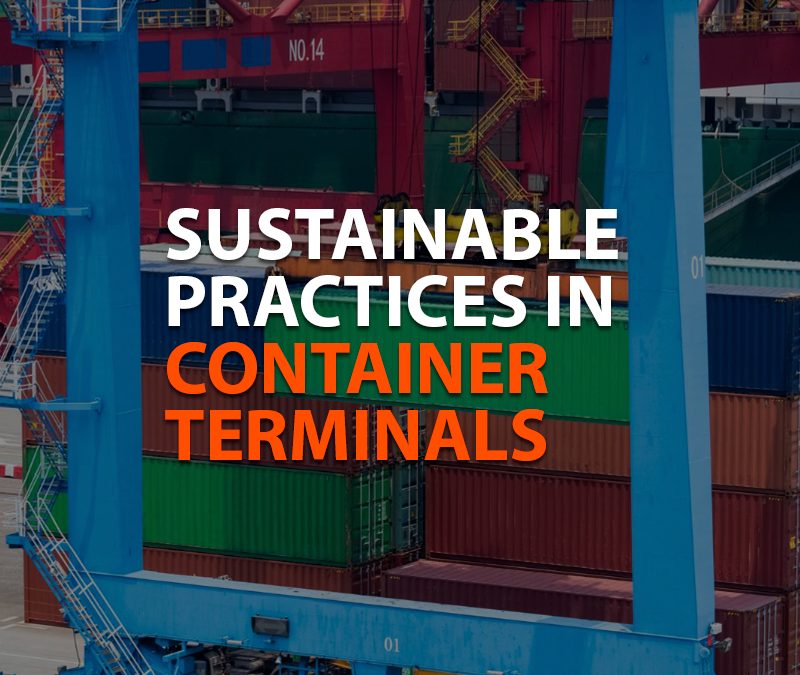Industries worldwide are redefining their practices to embrace sustainability. Container terminals, the vital hubs of global trade, are no exception.
As we confront the challenges of climate change and dwindling natural resources, the spotlight is on these terminals to adopt eco-friendly initiatives and pave the way for a greener future. Let’s delve into the sustainable practices revolutionizing container terminals, shaping a world where commerce and environmental consciousness coexist harmoniously.
1. Energy Efficiency and Renewable Sources:
One of the key pillars of sustainable container terminals is energy efficiency. These terminals are increasingly harnessing the power of renewable energy sources such as solar, wind, and tidal energy. By integrating solar panels on terminal buildings and employing wind turbines along the coastline, terminals are significantly reducing their reliance on fossil fuels. Smart grid technologies optimize energy distribution, ensuring that every watt is utilized efficiently.
2. Electrification of Cargo Handling Equipment:
Traditionally, cargo handling equipment in terminals relied on diesel-powered engines, contributing to air pollution and greenhouse gas emissions. However, the shift towards electrification is transforming the landscape. Electric cranes, forklifts, and trucks are becoming commonplace, eliminating harmful emissions and noise pollution. With advancements in battery technology, these electric vehicles can operate for extended hours, enhancing productivity while preserving the environment.
3. Cold ironing
Cold ironing, also known as shore power or Alternative Maritime Power (AMP), is a revolutionary green solution that addresses the environmental impact of ships while at port. Traditionally, ships rely on their onboard diesel generators to power essential systems even when docked. This practice not only consumes significant amounts of fuel but also emits harmful pollutants into the air, contributing to air pollution and climate change.
Our TEC Shorepower solution aim is to contribute to the implementation of this system on European ports

4. Waste Reduction and Recycling Programs:
Sustainable terminals prioritize waste reduction through comprehensive recycling programs. Offices, warehouses, and even shipyards within terminals are equipped with recycling bins, encouraging employees to segregate waste materials effectively. Additionally, terminals are investing in innovative recycling technologies that can repurpose materials like plastic, metal, and paper. By reducing the volume of waste sent to landfills, terminals are minimizing their environmental impact and promoting a circular economy.






